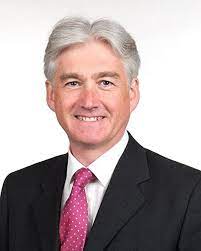
The RAF, however, has been leading remote teams for a long time. Senior leaders do so from headquarters well behind the action (for the RAF often deep in enemy territory). Squadron Commanders must lead their people whether they are in the same aircraft, another one or not even with the flight.
Sir Keith Park, the Air Officer Commanding 11 Group who won the Battle of Britain, led all his fighter squadrons from a bunker in near Uxbridge. As a squadron commander, I was not always even on the detachment of my squadron that was on operations. I also remember one sortie over Iraq when I was giving a lead to a whole international package of aircraft having to rely on a callsign I had never heard of before for a service whose normal provider I knew had turned back unserviceable. But I knew of them and trusted them.
We are in the anniversary period of the Battle of Britain so it is topical. The Battle was fought using the world’s first networked air defence system. The network was based on telephone lines. A picture of the Battle was compiled in near real time at Fighter Command HQ from the radar returns and the Observer Corps.
The part of the picture pertinent to each Group HQ was relayed to them – for Park this was at Uxbridge in Middlesex and the squadrons he led were based from North Kent through Sussex, Surrey and Hampshire. The pilots fought against what felt like overwhelming odds for four months never backing away from the fight because of their leadership. One pilot wrote to his mother telling her that none of them would refuse the fight even if they were the last pilot left.
Park got to know his squadron commanders well. He set them a framework within which to work based upon the strategy set by Dowding at Fighter Command. And he drove his squadrons hard. The framework was loose enough for the squadrons to apply their own tactics. Park gathered his subordinate commanders together regularly so that tactics that worked better could be passed onto other squadrons. Problems could be discussed and ameliorated.
Park also visited at least one of his airfields flying there every day in the evening when it was less dangerous, in his personal Hurricane, OK1. He became a recognisable figure supporting his people. He was constantly concerned with his pilots, for example always trying to improve their diet, and they knew it.
One pilot landed having forgotten to put his undercarriage down. Park called him to his office and tore a strip off him for damaging a precious aircraft unnecessarily. He then took him to the bar and bought him a beer. That pilot was back fighting the following day with renewed vigour.
In 2003 Gulf War, Sir Glenn Torpy, the commander of all RAF aircraft in the War acted in a similar manner. He ensured he knew his people well and they him. They trusted him.
In my case, I too ensured that I knew my squadron personnel, the aircrew and the groundcrew. And they knew me. Knew that I was concerned for them, that I would put myself out for them, so that they would follow my intent even if I was not there. On one sortie, one of my aircraft lost an engine over Iraq and limped to an airstrip in Saudi right on the border. It was unmanned, with no fence and only a fire truck with skeleton fire crew. It took us three days to reach the crew and recover the aircraft amid rumour that the Iraqis were looking to capture them. The next day I asked for volunteers for the next sortie over Iraq. Despite the fears of all that the engines were being asked too much of and that another might fail all my people volunteered. They trusted me.
Everyone in the RAF is trained and educated to lead. In the Battle of Britain ‘every man was to use their own best judgement’. Leaders provided the strategy (not a detailed plan), they got to know their people well. What they were capable of and what they were not. Followers knew their leaders, trust was built. Missions were assigned. Subordinate leaders had the flexibility to find a way to achieve them. And did so.
Everyone must be prepared to lead. Must know each other well. Trust each other. Senior leaders have to ensure that circumstances are well understood, they must engender a determination to get things done. They must make strategy and intent clear and leave room for others to find a way to get things done. Prior preparation is vital.
Dr John Jupp OBE is a former fighter pilot, Squadron Commander and founder of the RAF Leadership Centre. His new book Rise Above – Leadership lessons from the RAF is published by Pearson, £14.99.


